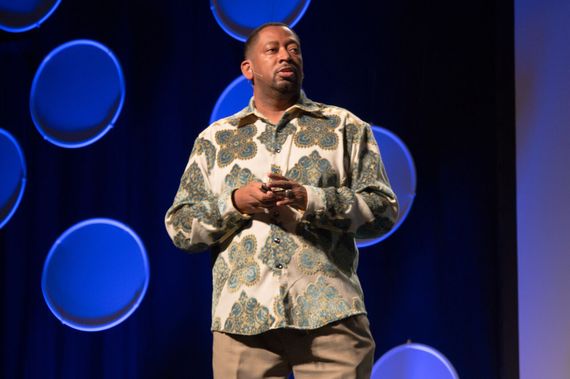
I've spent countless hours on the road and delivering speeches to all sorts of audiences about strategies for achieving maximum potential. As with so much else, I feel I need to remind you all that of course, there is no uniform approach or nugget of knowledge that you can grasp for immediate and long-term success. Success does not happen overnight, but it does happen over time. If that were the case, it would be behind a very expensive paywall on another site. What I can share with you are some of the tried and true leadership building blocks: the skills that educators and school administrators are working hard to instill in children and the skills that hiring managers at top companies are looking for in prospective employees. Believe it or not, they're one and the same. Here are some qualities and behaviors you can and should start modeling and instilling in the young people in your lives:
Emotional intelligence. Maybe you've read about emotional intelligence before, it's a pretty advanced concept that's caught fire in human resources and business schools. Basically, emotional intelligence is understanding and controlling one's own emotions and knowing how and when to express them. Perhaps you're already thinking of that coworker or classmate who has low emotional intelligence because these are complex ideas and realities for adults to grasp as well. You can see the lack of emotional intelligence in the face of a toddler who is unable to express how they're feeling. And maybe you've said or heard adults say to a frustrated child, "use your words." Being able to verbalize feelings and solutions to the empathetic people around them is a big step and truly a lifelong lesson in our journeys. There's of course the other side to the coin: can people recognize when others need help and make that happen in a low-impact way? This isn't just about when small children need food or water: this is being able to read signals in people's body language, their faces- when they need help, when they are confused, when they are excited and crafting a proportional and acceptable response to those emotions is, well, the key to life.
Thirst for knowledge. The end of our formal education does not mark the end of our journey of discovery, learning and understanding. Adult education and continuing education classes are always full because as economies, industries and cultures evolve, so do the needs for ongoing learning and instruction. Instilling in young people basic curiosity about the world around them, how things work, how things can be improved, how innovations have changed the world- these are all important lessons that can help spark future entrepreneurs, researchers and game-changers of tomorrow. There's of course a balance to be struck here- we don't want to keep kids researching and reading around the clock in pursuit of unreachable goals, but they can and should understand that curious, inquisitive and analytical minds have given society breakthroughs in medicine, art, technology and architecture, to name just a few. Business leaders are always on the hunt for the next big idea, improvements on existing products and supply chains: setting your child on the path to innovation can help them help others as well as themselves.
Defining and reaching goals. Again, this is one of the things that educators and business people are all after every day of the week on the job. Teachers have goals for their students- to get them to understand mathematical concepts, to learn to read, to understand the significance of historical events and their impact on us today. Business people are trying to improve products, raise stock prices, provide services- often with numerical and financial targets behind them. Young people are caught in the middle: having to do the reading, studying and math flash cards to make these goals a reality. We also see these concepts in households: doing chores is a great example- getting children to understand the concept of what the end of a process should look like- a clean bedroom, for example. This helps set them up for success because they'll realize their potential to achieve things, celebrate their effort and think of ways to improve it. These are all applicable to many arenas in life.
What about all of you out there? What skills do you think helped you get on the path to success? Were there any things that you wish you had spent more time developing as a young person? I'd love to hear more, especially as I share some of these insights in my travels to classrooms and trade events around the country.
